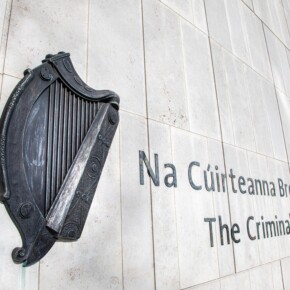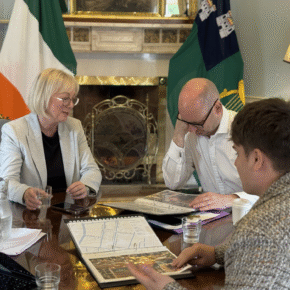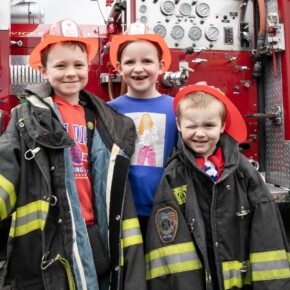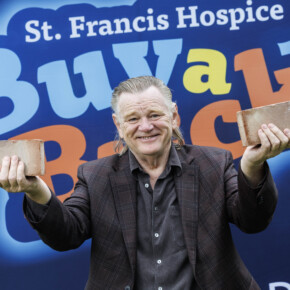Dublin doctor’s call for all to learn CPR as she saves dad’s life
Padraig Conlon 19 Oct 2020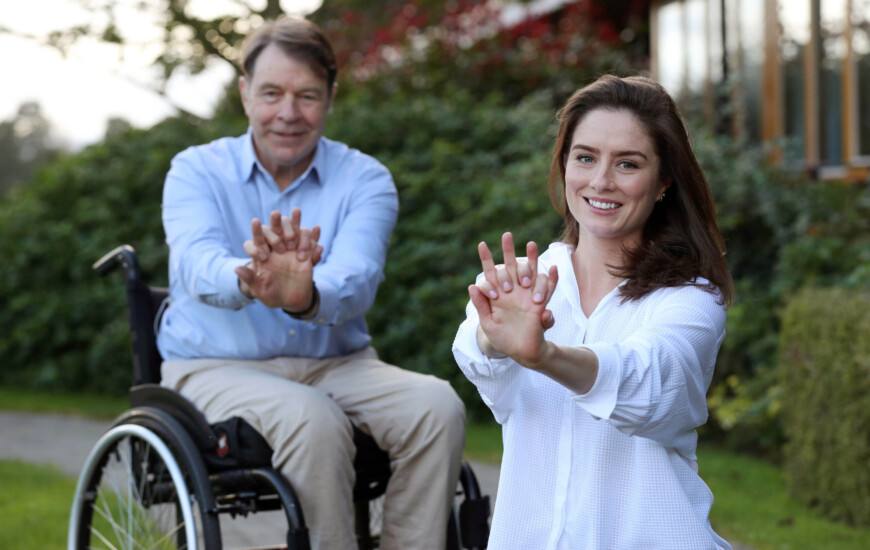
A young Dublin doctor has urged people to learn life-saving CPR after she saved her father’s life when he had a cardiac arrest while they were out cycling.
Caoimhe Costigan, from Glasnevin, was out for a bike ride with her dad Colm, who is also a doctor, in rural Tipperary when she noticed he was slowing down and had dismounted.
He collapsed shortly afterwards.
“I literally put my phone on speaker, put it on Dad’s chest and rang 999. I just started doing CPR without thinking about it really – the man on the phone was very helpful,” Caoimhe.
“I said to him that I was a doctor and that I was doing CPR
“I was desperately worried about Dad.
“I just kept trying to remember the stories of others who had survived a cardiac arrest with good-quality CPR.
“I didn’t do any doctoring at the side of the road – it was because I knew CPR. There was literally nothing else I could have done.”
Colm and Caoimhe are encouraging everyone to learn how to do CPR which can triple a person’s chances of survival from a cardiac arrest.
While classes for the public have ceased due to Covid-19 restrictions, the Irish Heart Foundation has launched a two-week online Restart a Heart campaign to help the public to learn the life-saving steps.
The charity commissioned an online video featuring the character of Manny Quinn that emphasises the two essential steps when performing CPR on a person in cardiac arrest.
The first step in CPR is to call 999 or 112 and the second is to push hard and fast on the centre of the chest.
Caoimhe paused her CPR only briefly to ask somebody to give directions to the emergency services.
It was a full 22 minutes before the gardai arrived on the scene followed by paramedics, fire brigades and an army air ambulance.
At that stage Caoimhe was able to step back and allow the ambulance crew to take over – crucially they had a defibrillator.
“It went on for quite a long time. Finally, after the third or maybe the fourth shock from the defibrillator, I heard one of the guys shout that he had a pulse,” she said.
After emergency services were able to resuscitate him, Colm, originally from Offaly but living in Baldoyle, was airlifted to Limerick University Hospital, where he had a stent inserted followed by months of recovery.
Caoimhe believes that anyone can do what she did for her dad, and that her medical training was not a factor.
While the Manny Quinn video has an element of eye-catching fun, the message is very serious explains Brigid Sinnott, Resuscitation Manager at the Irish Heart Foundation.
“Thousands of people die every year in Ireland from cardiac arrest and approximately 70% of those happen at home in front of a loved one,” she said.
“If someone who knows CPR can start performing compressions quickly they can double or even triple a person’s chances of survival.
“In 2018, 176 people survived a cardiac arrest because of the actions of somebody who knew CPR. If an extra 100,000 people learn CPR, we could potentially save an extra 60 lives a year on average.
“However a person’s chances of survival drop by 10% for every minute that passes without somebody performing CPR or using a defibrillator on them.
“That’s why at the Irish Heart Foundation we want to create a nation of lifesavers by training as many people as possible in CPR.
“Last year, we launched a free community Hands for Life training programme in CPR which was very successful, but with the pandemic we need to innovate to spread our message.
“Because of Covid we have had to stop running CPR classes, so we are urging people to watch Manny Quinn’s video message on irishheart.ie to understand what to do when faced with a cardiac emergency.
“The more people who know what to do in a case of cardiac arrest, the more likely a person who has a cardiac arrest will have of receiving this simple life saving treatment.
“It is really important for people to realise that they don’t have to be a trained doctor or medical professional to perform CPR – anybody can do it.
“An important first step is to call 999 or 112 because the emergency services will talk you through each step of CPR and stay on the phone with you until emergency services arrive on the scene.”
To find out more go to www.irishheart.ie


